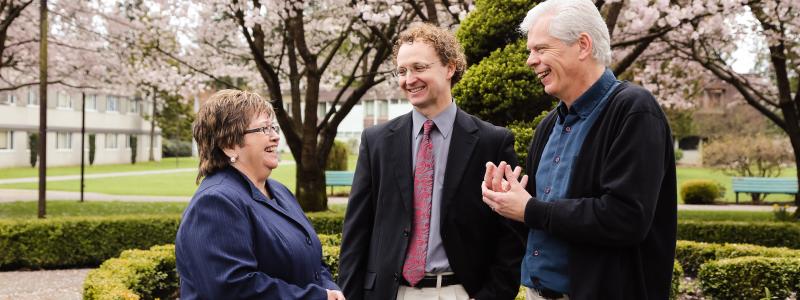Trinity Western will suspend classes on September 18 to allow its students, faculty, and staff to participate in the Truth and Reconciliation Commission (TRC) event in Vancouver. Along with fellow institutions, UBC, SFU, and UFV, the entire TWU community will take part in the important public event.
Mandated to seek the truth and play a role in the healing and reconciliation process for the aboriginal people of Canada who suffered under the Indian Residential School (IRS) system, the TRC has hosted events across the country, with the sixth of seven national events to be held at the Pacific National Exhibition from September 18-21.
“It’s a venue in which all Canadians—Aboriginal and non-Aboriginal—can participate in the reconciliation process,” said Trinity Western’s University Siya:m and co-chair of the Aboriginal Partnership Council Patti Victor. “As Christians, we are called to be ministers of reconciliation. We need to examine our own blind spots or ignorance.”
Victor, who took on the role of last fall, mentors students of both Aboriginal and non-Aboriginal descent, and helps foster a greater understanding and respect between the two cultures.
To help the campus community prepare for next week’s TRC event, Victor facilitated two information sessions, where students, faculty, and staff learned more about the IRS and heard a first-hand account of the system from one of its survivors. “It’s not just about remembering the past,” Victor said. “The telling of truth is part of the reconciliation process.”
Across the campus, faculty members—including Professor of History Robynne Healey, Ph.D.—are also helping students prepare for the event. “As a historian, I believe one of the most significant things about the TRC is that it records peoples’ experiences,” she said. “Through the TRC, individuals’ stories become part of the larger narrative, the larger Canadian story. It allows people to say, ‘This was my experience,’ and to have that experience documented.”
That acknowledgement is also a vital part of the process for Christians, since the Indian Residential Schools were government-funded but predominantly church-run. Many Canadians, Christian and non-Christian, remain unaware of the extent to which the system has affected generations of Aboriginal children, their families, and their communities.
“There’s a real heart change that begins to take place once we hear the truth,” Victor said. “And once we have that knowledge, once God has transformed our hearts, it doesn’t just stay here at TWU.”

